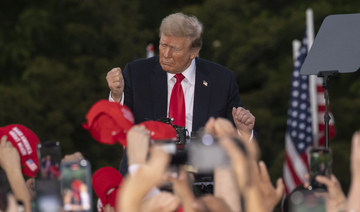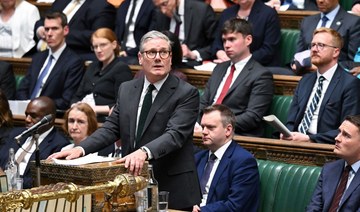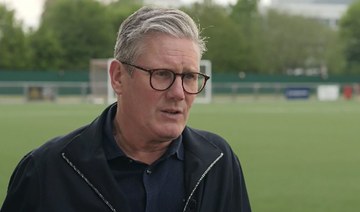We are urgently working to deliver more for people and the planet. Multiple, overlapping shocks have strained countries’ ability to address hunger, poverty and inequality; build resilience; and invest in their futures. Debt vulnerabilities in low- and middle-income countries present a major hurdle to their economic recovery and to their ability to make critical long-term investments.
We are urgently working to fight poverty and inequalities. An estimated 120 million people have been pushed into extreme poverty in the last three years and we are still far from achieving our UN Sustainable Development Goals by 2030. We should thus place people at the center of our strategy to increase human welfare everywhere on the globe.
We want a system that better addresses development needs and vulnerabilities, now heightened by climate risks, which could further weaken countries’ ability to eliminate poverty and achieve inclusive economic growth. Climate change will generate larger and more frequent disasters and disproportionately affect the poorest, most vulnerable populations around the world. These challenges cross borders and pose existential risks to societies and economies.
We want our system to deliver more for the planet. The transition to a “net-zero” world and the goals of the Paris climate agreement are an opportunity for this generation to unlock a new era of sustainable global economic growth. We believe that just ecological transitions that leave no one behind can be a powerful force for alleviating poverty and supporting inclusive and sustainable development. This requires long-term investment everywhere to ensure that all countries are able to seize this opportunity. Inspired by the historic Kunming-Montreal Global Biodiversity Framework, we also need new economic models that recognize the immense value of nature for humanity.
We are convinced that poverty reduction and protection of the planet are converging objectives. We must focus on just and inclusive transitions to ensure that the poor and most vulnerable can fully reap the benefits of this opportunity, rather than disproportionally bearing the cost. We recognize that countries may need to pursue diverse transition paths in line with the Paris agreement’s 1.5 degrees Celsius limit, depending on their national circumstances. There will be no transition if there is no solidarity, economic opportunities or sustainable growth to finance it.
We, leaders of diverse economies throughout the world, are united in our determination to forge a new global consensus. We will use the Paris Summit for a New Global Financing Pact on June 22-23 as a decisive political moment to recover development gains lost in recent years and to accelerate progress towards the SDGs, including just transitions. We are clear about our strategy: Development and climate commitments should be fulfilled and, in line with the Addis Ababa Action Agenda, we need to leverage all sources of finance, including official development assistance, domestic resources and private investment.
Delivering on that consensus should start with existing financial commitments. Collective climate-finance goals must be met in 2023. Our total global ambition of $100 billion of voluntary contributions for countries most in need, through a rechanneling of special drawing rights or equivalent budget contributions, should also be reached.
No country should have to wait years for debt relief. We need greater and more timely cooperation on debt, for both low- and middle-income countries. This starts with a swift conclusion of solutions for debt-distressed countries.
A top priority is to continue ambitious reform of our system of multilateral development banks, building on the existing momentum. We are asking development banks to take responsible steps to do much more with existing resources and to increase financing capacity and private capital mobilization, based on clear targets and strategies in terms of private finance contribution and domestic resource mobilization. These financial resources are essential, but this reform is about far more than money. It should deliver a more effective operational model, based on a country-led approach. We also need our development banks to work together as an ecosystem and with other public agencies and streamlined vertical funds, as well as with philanthropists, sovereign wealth funds, private finance and civil society where appropriate, to deliver the greatest impact.
Technology, skills, sustainability and public and private investment will be at the core of our partnerships, which will seek to support voluntary technology transfer, a free flow of scientific and technological talents, and an inclusive, open, fair and nondiscriminatory economy. We will promote an agenda of sustainable and inclusive investment in developing and emerging economies, based on local economic value added and local transformation — for example, of fertilizer value chains. This comprehensive approach will require new metrics to update our accountability instruments.
Public finance will remain essential to achieving our goals. We should start by strengthening our instruments (the International Development Association, the International Monetary Fund’s Poverty Reduction and Growth Trust and Resilience and Sustainability Trust, the International Fund for Agricultural Development, the Green Climate Fund and other concessional windows of our banks, as well as the Global Shield against Climate Risks). But we acknowledge that meeting our development and climate goals will require new, innovative and sustainable sources of finance, such as debt buy-backs, engagement from sectors that prosper thanks to globalization and more trusted carbon and biodiversity credit markets. This is true of the fight against hunger, poverty and inequality; adaptation to climate change; and efforts to avert, minimize and redress loss and damage.
Increasing resilience through a comprehensive suite of financial instruments is a high priority. We need a stronger global safety net, based on prearranged approaches, to mitigate and adapt to the effects of climate change, especially when disasters hit. This implies climate and other disaster-resilient deferral mechanisms, insurance nets and emergency response financing, including a more sustainable model for humanitarian aid.
Achieving our development goals, including climate mitigation, will also depend on scaling up private capital flows. This requires enhanced mobilization of the private sector with its financial resources and its innovative strength, as promoted by the G20 Compact with Africa. This also requires improving the business environment, implementing common standards, adequate capacity building and reducing perceived risks, such as in foreign exchange and credit markets. This may require public support, as well as sharing reliable data. Overall, our system needs to lower the cost of capital for sustainable development, including for the green transition in developing and emerging economies.
Our work together is all about solidarity and collective action, to reduce the challenges facing developing countries and to fulfill our global agenda. We will continue to press for progress, leveraging other important events, including the G20 Summits in India and Brazil, the SDG Summit and the COPs, starting with COP28 in the UAE this year. In all of our upcoming international works and negotiations, we will seek to advance concrete actions that deliver on the promise of the SDGs, for our prosperity, people and planet.
— Emmanuel Macron is President of France.
— Mia Mottley is Prime Minister of Barbados.
— Luiz Inacio Lula da Silva is President of Brazil.
— Ursula von der Leyen is President of the European Commission.
— Charles Michel is President of the European Council.
— Olaf Scholz is Chancellor of Germany.
— Fumio Kishida is Prime Minister of Japan.
— William Ruto is President of Kenya.
— Macky Sall is President of Senegal.
— Cyril Ramaphosa is President of South Africa.
— Sheikh Mohammed bin Zayed Al-Nahyan is President of the United Arab Emirates.
— Rishi Sunak is Prime Minister of the United Kingdom.
— Joseph Biden Jr. is President of the United States.


























